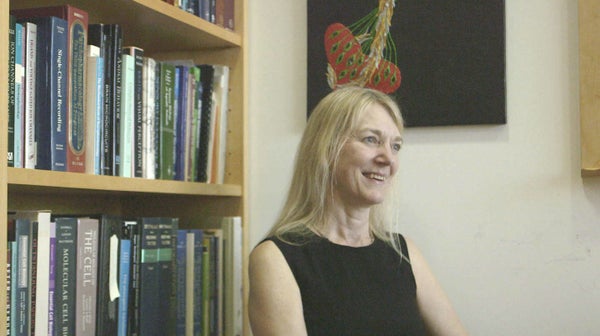This article was published in Scientific American’s former blog network and reflects the views of the author, not necessarily those of Scientific American
What do we do when we’re hungry? How do we react when people gather around us? Where do we go when we want to be alone? Humans have so many complex behaviors, yet researchers think many of them have developed directly from the ways animals act and react. Whether that is true can be revealed by studying how genes direct biological functions, and how those functions result in action.
Cori Bargmann, a neurobiologist at Rockefeller University, is hot on this trail. She’s trying to determine the roots of animal behavior, from worms to humans, by studying how genes affect the brain, and how that affects what animals do. Among many experiments, she is investigating the worm C. elegans, a popular species among neuroscientists. It has about 20,000 genes in its genome, compared with about 25,000 for humans, yet it only has 302 neurons in its brain, versus 86 billion in ours, according to Bargmann. That means researchers can test links between specific neurons and specific behaviors. Bargmann is focusing on the sense of smell, and how chemicals called pheromones that animals emit and smell, affect mating behavior and how animals behave in groups.
On supporting science journalism
If you're enjoying this article, consider supporting our award-winning journalism by subscribing. By purchasing a subscription you are helping to ensure the future of impactful stories about the discoveries and ideas shaping our world today.
Bargmann explains her fascinating work in simple, clear terms, in an engaging video titled “Roots of Behavior,” created by N.Y.U. neuroscientist Joseph LeDoux, an expert on the emotional brain. The video is the fifth in a series he is putting together with director Alexis Gambis called My Mind’s Eye. (The first episode featured Ned Block on the mind–body problem, the second video was with Michael Gazzaniga on free will, the third was with Nobel laureate Eric Kandel on how neurons in the brain learn and create memories, and the fourth featured Liz Phelps on why our memories change over time.) LeDoux and Gambis have given Scientific American the chance to post these videos first, on our site.
For fun, the Bargmann interview comes with snippets of a related song that LeDoux recorded with his band, The Amygdaloids, called “Roots.” Enjoy.
